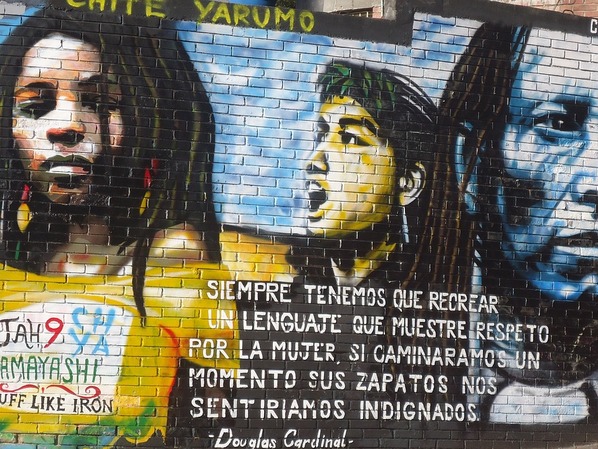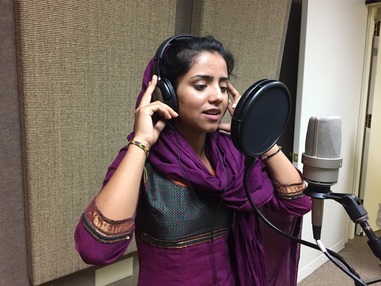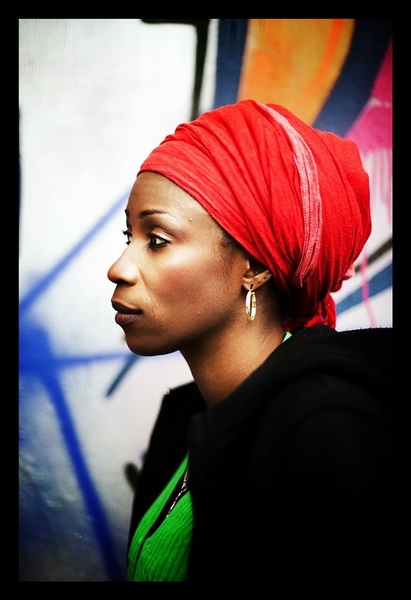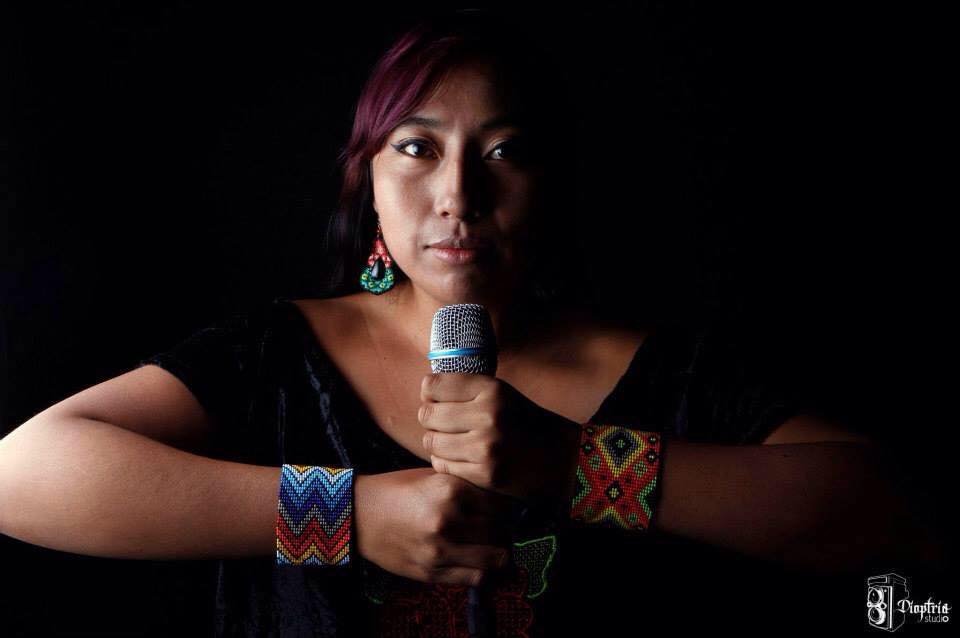|
The Breadcrumbs widget will appear here on the published site.
Communicating the Truth to the World
Rap music has been part of my life for as long as I can remember. I grew up listening to Lauryn Hill, Three 6 Mafia, Outkast, and countless others who greatly influenced my musical tastes. It was not until more recently, however, that I noticed the revolutionary tone woven through rap lyrics, speaking about the fight for racial equality, religious liberation, and cultural recognition. Also in the past few years, I’ve become increasingly interested in parts of the world where the very negative effects of imperialism, cultural exploitation, and poverty resulting from this are still felt – “third world” countries. So when an article on a young Afghan feminist rapper came across my Facebook news feed, I began to wonder if any connections existed between rap music, activism, and feminism in third world countries.
In the major underdeveloped third world regions of the world – Central America, sub-Saharan Africa, and the Middle East into South Asia – women face major difficulties every single day. These difficulties include lack of marriage rights coming from strict interpretations of sharia (Islamic law) and old patriarchal codes of conduct; lack of opportunity in education coming from economic strain, scarce resources, and lack of communication; and lack of political and social rights coming from political turmoil. Three women, using rap music in Afghanistan, Senegal, and Mexico, are fighting this oppression in remarkably creative ways, giving a voice to the underprivileged and bringing recognition and change to women’s issues.
There is a lot of diversity in the problems that third world women face. When women lack political and social rights, it leads them to be in situations that are detrimental to their physical and psychological well being. For instance, in Afghanistan, it is social custom for girls to be married at age twelve and even younger, despite the fact that Afghan civil law sets the legal age at 16 – and 60 to 80 percent of marriages in Afghanistan are forced. In Mexico, violence and crime against women is on the rise, with six women killed every day in January 2015 and 7,185 going missing since 2006. These issues are important and must be spoken up against, but it must be acknowledged that these issues do not mean that a third world woman leads “an essentially truncated life based on her feminine gender (read: sexually constrained) and her being third world (read: ignorant, poor, uneducated, tradition-bound, domestic, family-oriented, victimized, etc.)” (from Ranjoo Seodu Herr’s article “Reclaiming Third World Feminism” for Meridians Volume 12). Women in underdeveloped countries face issues not only based on their gender, but also based on ethnicity, political affiliation, and other things. The root of the problem is not in outdated traditions, but in instability and lack of opportunity and education.
In Afghanistan 15 percent of girls are married before the age of fifteen, with bride prices reaching thousands of dollars according to the United Nations – and it is considered normal, despite the damage it inflicts upon the girls: 85 percent of Afghan women report that they have experienced physical, sexual, or psychological violence or forced marriage. Sonita Alizadeh, a now eighteen-year-old Afghan girl who spent much of her adolescent years as a refugee and underage worker in Tehran, Iran, without the legal identification documents needed to get any schooling other than basic reading and writing, was only ten when she had her first marriage proposal. Sonita ended up not getting married at ten, but at sixteen her marriage was announced again – for the money from her bride price would help pay for her own brother’s wedding.
It is difficult to speak up against your parents when you are only sixteen years old, especially against something that is been considered a normal social custom in your culture. But Sonita refused to be silent, and accept her future as “one by one, she watched her friends disappear to get married and have children” (from “Afghan teen uses rap to escape marriage” by Deborah Bloom for CNN). Sonita had been writing poetry in Iran in her teenage years, and began writing her own songs as well, despite the fact that it has been illegal to be a female solo singer in Iran since the 1979 revolution. To voice the anger and sadness she felt over her lack of choice in her own marriage and future, she wrote “Brides for Sale”, a strikingly emotional song about the injustices of forced marriage. She made a video for it that she put on YouTube, portraying herself in a white gown and veil, bruises on her face and a desperate look in her eyes: “Let me whisper, so no one hears that I speak of selling girls. My voice shouldn’t be heard since it’s against Sharia. Women must remain silent… this is our tradition.” Sonita’s video changed her life. It went viral, and was viewed by people all over the world and shared by well-known and important advocates for women’s rights such as Malala Yousafzai’s Malala Fund. After her own mother saw it Sonita was not forced to marry, and the strong passion of her video even granted her a scholarship to a school in Utah. She overcame the difficulties that she faced not only as a woman, but also as a refugee in Iran without access to education, and as someone who had undergone the trauma of an Afghan childhood surrounded by the Taliban.
In Senegal, girls also face circumstances where they have little to no choice. Senegalese female activist rapper Fatou Mandiang Diatta, or Sister Fa as her music fans know her, encountered physical and psychological trauma that still stays with her today when she unwillingly underwent FGM (Female Genital Mutilation) at the age of four or five – she is now thirty three. FGM is a social custom and female rite of passage that includes “all procedures involving partial or total removal of the external female genitalia or injury to the female organs for non-medical reasons,” and is practiced in many African and Middle Eastern countries. Contrary to popular belief, the tradition of FGM does not have its roots in Islam or any one religion, as members of many religions, including Islam, Christianity, Judaism, and various animist faiths, practice it. FGM is very harmful and can result in severe bleeding, infection, painful sexual intercourse, childbirth problems, and scarring. It also results in psychosexual issues and psychological problems such as depression: Fatou herself says, “When you are circumcised, you feel like an incomplete woman… It has been difficult for me” (from “Waging a lyrical war against FGM" by Renate van der Zee for Al Jazeera).
But Fatou, like Sonita, took the pain and trauma she experienced and put it into words – or, more precisely, lyrics. At age sixteen (the same age Sonita was when she released “Brides for Sale”), after learning female anatomy and realizing that she did not have everything that was displayed in her textbook, she started writing to process this new realization of what had really happened to her when she was five and to process her surroundings and life. When she moved to Senegal’s capital, Dakar, to look after her ailing mother, Fatou started rapping, and even performed at the 2001 Senegal Hip Hop Awards. For Fatou, it was difficult being a woman. Women rappers are uncommon across the world, but in more patriarchal societies such as Senegal, being a female rapper and going out to work for social justice is a highly abnormal thing to do. Fatou went past just rapping, and also started speaking to Senegalese villagers about the dangers of FGM. That is truly courageous and incredible, because FGM and sexuality in general are subjects that, generally speaking, are never discussed in sub-Saharan societies such as Senegal, Mali, New Guinea, and others. Fatou has faced opposition and difficulties when working on her music career and in her work to eradicate FGM from Senegal, but she has not given up. Her vision for social justice is strong, and she cannot be stopped. She says, regarding the possibility of her receiving genital reconstruction surgery and the psychological trauma involved with FGM, “When it comes to this psychological reconstruction, I have been my own surgeon. I have healed myself by talking to people, by telling my story, by telling young girls: they have violated your rights; make sure you don’t do this to your own children” (from “Waging a lyrical war against FGM" by Renate van der Zee for Al Jazeera). Fatou, and most likely other Senegalese women that are not heard of in worldwide media, are actively working to change a custom that is deeply rooted in the society. It is no small task, but they are already succeeding by bringing wide awareness to the issue.
Mare Advertencia Lirika, an indigenous Zapotec living in Oaxaca, one of Mexico’s poorest states, is also fighting the oppression of women through rapping and rhyming. Her story, however, is slightly different. Twenty-eight years old and coming from what we would call the “slums” of Oaxaca City, Mare’s rapping and activism began with police violence and graffiti. For decades graffiti has been used to display political and social truths that the media and government do not publicize, and it is a big part of hip hop culture because of its innate promotion of free speech, personal expression, and “power-to-the-people”. Referencing the growth in police violence Oaxaca faced in 2006, Mare says “We sprayed the walls to communicate with the world because the media said nothing about the violence” (from “Rapper’s lyrical fight for Mexican women’s rights" by Tim MacGabhann for Al Jazeera) – and that’s what rap music is all about as well: communicating truth to the world. Her life was profoundly influenced by her childhood of poverty and the trauma she experienced when she witnessed her father’s death during conflicts about local Zapotec tribal lands, when she was only five years old, but she has channeled these difficulties into powerful music and activism.
Most of Mare’s lyrical prowess is put into protesting Mexico’s patriarchal society and the rising toll of violence against women and “femicides”, or murders directed at women because of their gender. Only 24 percent of these crimes directed towards women are investigated, however, and the perpetrators of only 1.6 percent of the crimes are convicted. Mare is a strong voice in bringing awareness to this issue. As she states in one of her rap songs, “The only place women are in first place… is in the stats on the violence." Her songs invoke the spirit of protest – she’s protesting not only the violence and killings against women in Mexico, but also the way that the “violence trickles down in subtle ways… in the way men look at [women] and harass [women] in the street” (from “Rapper’s lyrical fight for Mexican women’s rights" by Tim MacGabhann for Al Jazeera). She, like Sonita and Fatou, is an incredible voice for the women who do not speak of the struggles they face every day. Women who come from poverty and lack of opportunity all across the world face similar problems in diverse locations, and react against these problems and oppression in creative and powerful ways. Sonita, Fatou, and Mare are just three examples of the strength and will the women possess, and the ability they have to bring recognition and change to the injustices of the world. The simple truth is that this world is not an equal place, and women across the world face abuse, violence, and repression of their personal choice every day. What we must do is share the stories of these strong women, and we must take inspiration from them and work for change in our own communities. We must bring awareness to the important issues that influence our own daily lives and the lives of women we care about, such as street harassment, and we must listen to and support women in need. As renowned anthropologist Rogaia Mustafa Abusharaf says, “Careful listening to women helps us to recognize them as political actors forging their own communities of resistance.” In order to change the situation of women worldwide, we need to truly listen to women like Sonita, Fatou, and Mare, who are courageously and passionately speaking out against what they feel is wrong, and creating the change they wish to see in the world. For more incredible feminist activist rap and art, check out Nneka, this project on Egyptian female rappers, Female Revolutionary Arab Rap, and Laila Ajjawi's graffiti.
#Real #Essay #Rap #Activism #Poverty #Violence #Hope #Feminism #PoliticalOppression
Visit our shop and subscribe. Sponsor us. Submit and become a contributor. Like us on Facebook and follow us on Twitter.
CommentsComments are closed.
|
|













